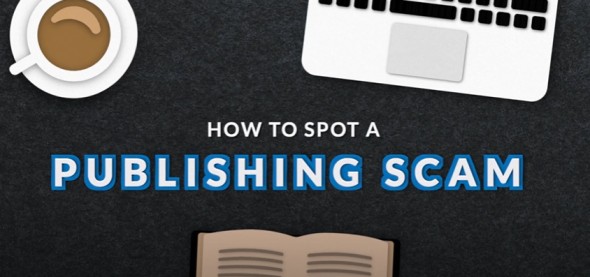
How to Find Literary Agents in 2025
March 24, 2025
Everything You Need to Know About Comp Titles
March 27, 2025Publishing scams refer to deceptive practices by predatory publishers and journals that exploit researchers by charging hidden fees while providing little or no legitimate editorial or publication services. These opportunistic entities often make false claims about peer review, impact factors, and quality indexes, misleading academics into believing they are submitting their work to a reputable open access journal.
Such scams involve unethical business practices, including spam emails, aggressive solicitation, and lack of transparency in their publication processes. Researchers must carefully assess invitations to publish, attend conferences, or serve on editorial boards to avoid falling victim to these fraudulent schemes.
- Unethical business practices that violate academic integrity.
- False claims about peer review, impact factor, and editorial board members.
- Hidden fees charged after accepting an article for publication.
- Mimicking legitimate journal names to deceive researchers.
- Sending spam emails inviting researchers to publish, attend a conference, or serve on editorial boards.
- Lack of transparency in editorial and publication practices.
- Exploiting researchers by prioritizing self-interest over scholarship.
- Aggressive solicitation practices to lure academics.
- Misleading information about their quality indexes and legitimacy.
Publishing Companies to Stay Away From
The trouble with many dodgy publishing companies is that they operate in a way that may not always be illegal, yet they still find ways to dangle seemingly irresistible offers in front of authors. These companies often exploit writers’ ambitions by making promises that sound too good to be true, leading them to ignore the voice of caution.
Whether through hidden fees, misleading contracts, or poor distribution, they manage to deceive authors into agreements that ultimately benefit only the publisher. Recognizing these tactics early is crucial to protecting your rights and ensuring your work gets the fair treatment it deserves.
“Literary Agents” Offering Guaranteed Book Deals
Falling for a publishing scam can be a nightmare for any aspiring bestselling author, especially when so-called literary agents reach out unsolicitedly with promises of lucrative book deals. These agent scams often involve upfront reading fees or shady contracts that take advantage of authors who don’t know the industry’s ins and outs.
A true reputable agent would never ask for money before selling your manuscript to a publisher, as they earn through commission. If an agent contacts you unexpectedly and asks for payment, they are likely trying to poach unsuspecting writers under the guise of representation.
To avoid these scams, always send a proper query letter and rely on vetted lists like the Association of Author Representatives or a trusted directory of literary agents. If a company seems suspicious, take a moment to research and even try a quiz designed to detect a predatory business before committing.
Overpriced Self-Publishing Services to Watch Out For
Many self publishing authors fall victim to companies that promise top-quality results but instead overcharge for editing and designing services, often delivering low-quality work. Some predators exploit an author’s dream of book success by offering marked-up prices for services like cover designers, illustrators, or book coaches, making it essential to do proper research before signing any contract.
Platforms like Reedsy carefully vet freelancers with professional experience in traditional publishing and indie books, ensuring a well-reviewed and seasoned collaborator works on your project. Some scams also involve charging hundreds of dollars for an ISBN (International Standard Book Number) when authors can get one directly from Bowker in the USA or Nielsen in the UK at the actual market price.
Many online retailers provide their own identification codes, making an ISBN unnecessary unless planning to distribute in brick-and-mortar stores. Another common trap is copyright registration, where scammers claim authors must pay excessive fees to apply for statutory rights, even though the process only costs a small fee. To avoid publishing scammers, always refer to a comprehensive guide and verify all costs before committing.
Sleazy Marketing Packages
Many authors eager to sell their book fall for overpriced marketing packages that promise success but rarely deliver. Scam companies lure writers with flashy press releases, making it seem like major media outlets such as The New York Times, Good Morning America, or Newsweek will pick up their story, but the chances of that happening are slim.
Similarly, book fairs in London, Frankfurt, and Bologna for children’s books attract the publishing world, yet predatory companies charge a fee to display your work, often leaving it lost among countless books in an unseen corner of a convention floor.
Some even offer screenplay adaptations or a coverage package, claiming to help sell your book to Hollywood production companies, but there’s little evidence of any successful pitches. Instead of falling for vague, grand promises of instant stardom, focus on real strategies like digital advertising, mailing list growth, and reaching your target reader directly.
Writing Contests and Awards No One Has Heard Of
Many authors dream of gaining writing credentials and reaching a wider audience through writing contests, but some competitions are nothing more than money-spinning enterprises. These so-called prizes often require winning authors to pay an editing fee for their winning entries to be published in a magazine or anthology, turning what should be an honor into an expense.
Some even offer trophies, but the author is expected to cover the cost—sometimes as high as $80—for a simple slab of acrylic. With dozens of winners each a directory of vetted opportunities, and steer clear of publishing companies that take advantage of your career instead of helping it.
How To Avoid Publishing Scams
Every published author dreams of success, but many writers fall prey to unreliable companies that promise the world while making a quick buck by exploiting their aspirations. These shady companies often disguise themselves as legitimate publishers, trapping authors in costly contracts that drain their bank account while delivering little to no real service.
To protect your work and dignity, it’s crucial to avoid such traps by learning to spot a publishing scam early. Look out for hidden fees, vague royalty structures, and aggressive marketing tactics—following these tips can save you from disappointment and financial loss.
1: Beware of People Who Contact You First
Receiving unexpected contacts from someone promising to fulfill your publishing dreams might seem exciting, but in reality, legitimate traditional publishing companies rarely reach out out of the blue. If you’re an author actively looking to get published, you’ll need to query agents or directly submit to publishers, as industry professionals are usually too busy reviewing submissions rather than scouting unknown writers.
The truth is, unless you are a well-known, chart-topping writer, no reputable editors will send you an offer to turn your book into a bestseller overnight. So, if an email lands in your inbox, promising guaranteed success, let the alarm bells start ringing—it’s likely one of many scams targeting hopeful writers
2. Stay Away From Any “Publisher” That Asks You to Pay
A publisher should never ask you to pay for the rights to print and distribute your own book—in traditional-style publishing, they handle everything from polish, package, and publish, ensuring selling as many copies as possible while offering an advance on royalties.
Literary agents who truly represent you don’t demand reading fees, editing fees, or legal fees upfront; they only make money when they sell your work. If a company charges you for these, it’s likely a vanity press or worse—a publishing scam. In self-publishing, however, you do pay for editors, designers, marketers, and printers, but these are services, not a path to false promises of success.
3. Google Them to See If They’re Legit
If you ever find yourself questioning the legitimacy of a company, simply Google their name to verify their legitimacy. A quick search on the search engine can reveal a lot about whether the company is trustworthy. Be wary if their website doesn’t exist or hasn’t been updated in years; those are major red flags.
For added security, check out Writer Beware, a helpful blog offering up-to-date news on publishing scams. They even have a blacklist of predatory companies that have been identified as scams, and if the company you’re dealing with is on that list, it’s a no-go. This simple step can save you from falling into a publishing scam.
4. Check out their books on Amazon
To avoid publishing scams, one helpful tactic is to look at the books the company claims to have worked on. Amazon is a reliable source for this, as most books are sold there these days. Alternatively, you can visit Goodreads. When you find the books, verify they have a quality book cover that matches other titles in the same genre and check if they have at least 10 user reviews from actual readers.
Take some time to investigate the reviewers; if you see names of other authors who have worked with this publishing company, it could indicate the company is unreliable. They might be asking authors to leave fake reviews to create a false sense of legitimacy for the book.
5. Reach Out to Fellow Writers
If you’re still uncertain about the company, why not ask other writers who have already gone through the publishing process? Visit established forums or discussion boards and ask questions to see if other authors have had similar experiences.
These platforms often contain valuable information, including threads detailing scams that fellow writers have encountered. It’s important to find a reputable writer community with a solid membership base to get diverse perspectives on the issue. Once you find the right place, you’ll likely receive helpful insights and advice!
6. Ask Questions and Assess the Pressure
A great strategy is to ask the company’s representative some specific questions. Inquire about details such as publishing costs, target markets, or distribution channels. To avoid publishing scams, pay attention not only to the answers but also to how they react.
Seasoned scammers often try to fluster you with urgency, pressuring you to make a decision quickly. If you find that they are rushing you, that’s a major red flag. Legitimate companies will take the time to provide clear answers and won’t try to make you feel panicked.
7. If Things Don’t Feel Right, Walk Away
If after all the research you still feel uncertain about the company, it’s always best to trust your gut and walk away. Don’t feel pressured to work with anyone unless you are sure about their reliability and credibility. Publishing can be tricky, and it’s vital to collaborate with partners who genuinely have the experience and expertise to help you succeed.
If you’re looking for trusted professionals, platforms like Reedsy vet their experts thoroughly to ensure you can connect with those who have a proven track record. You can sign up for free, browse profiles, and request services without the worry of encountering scams.



